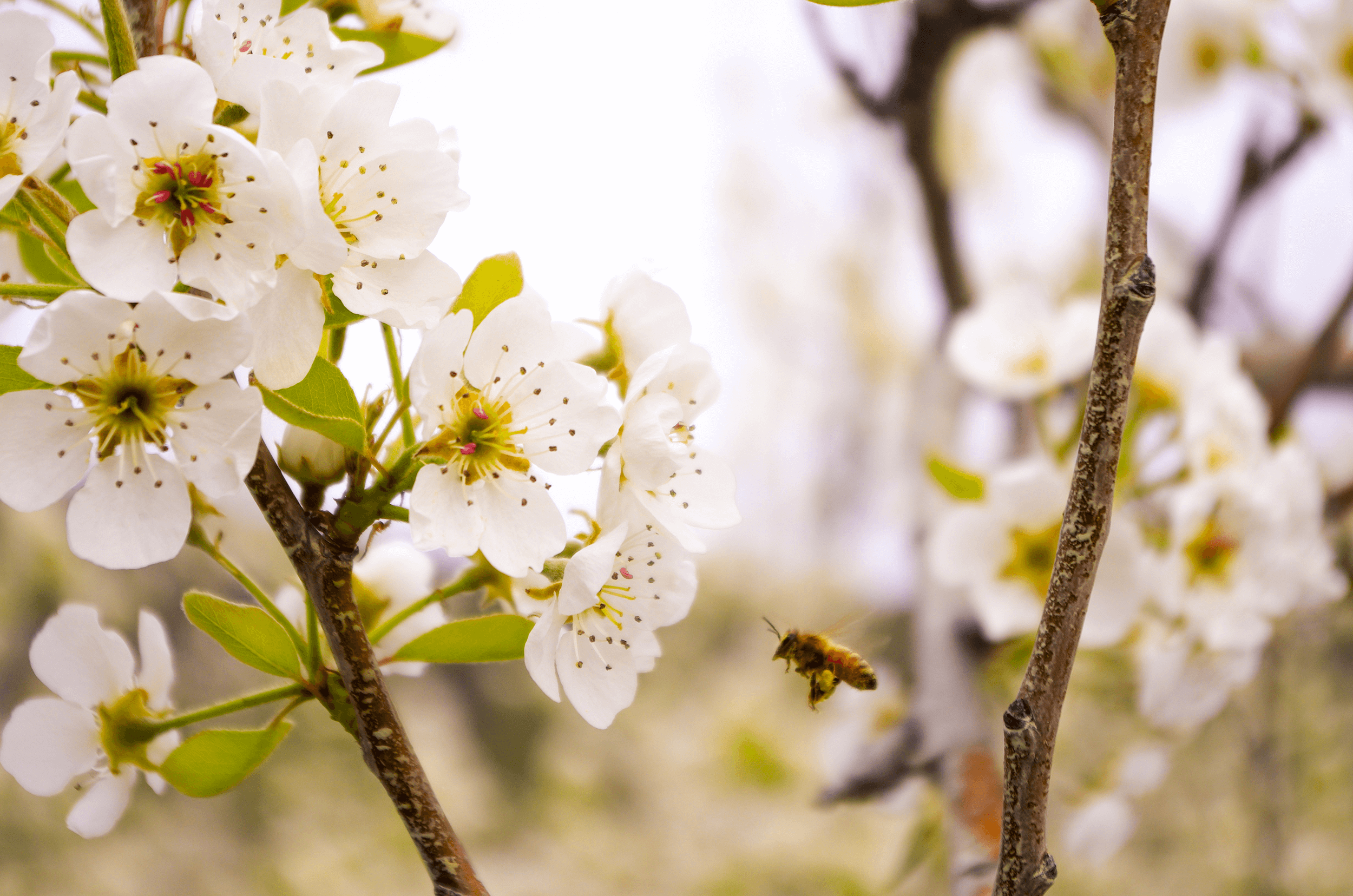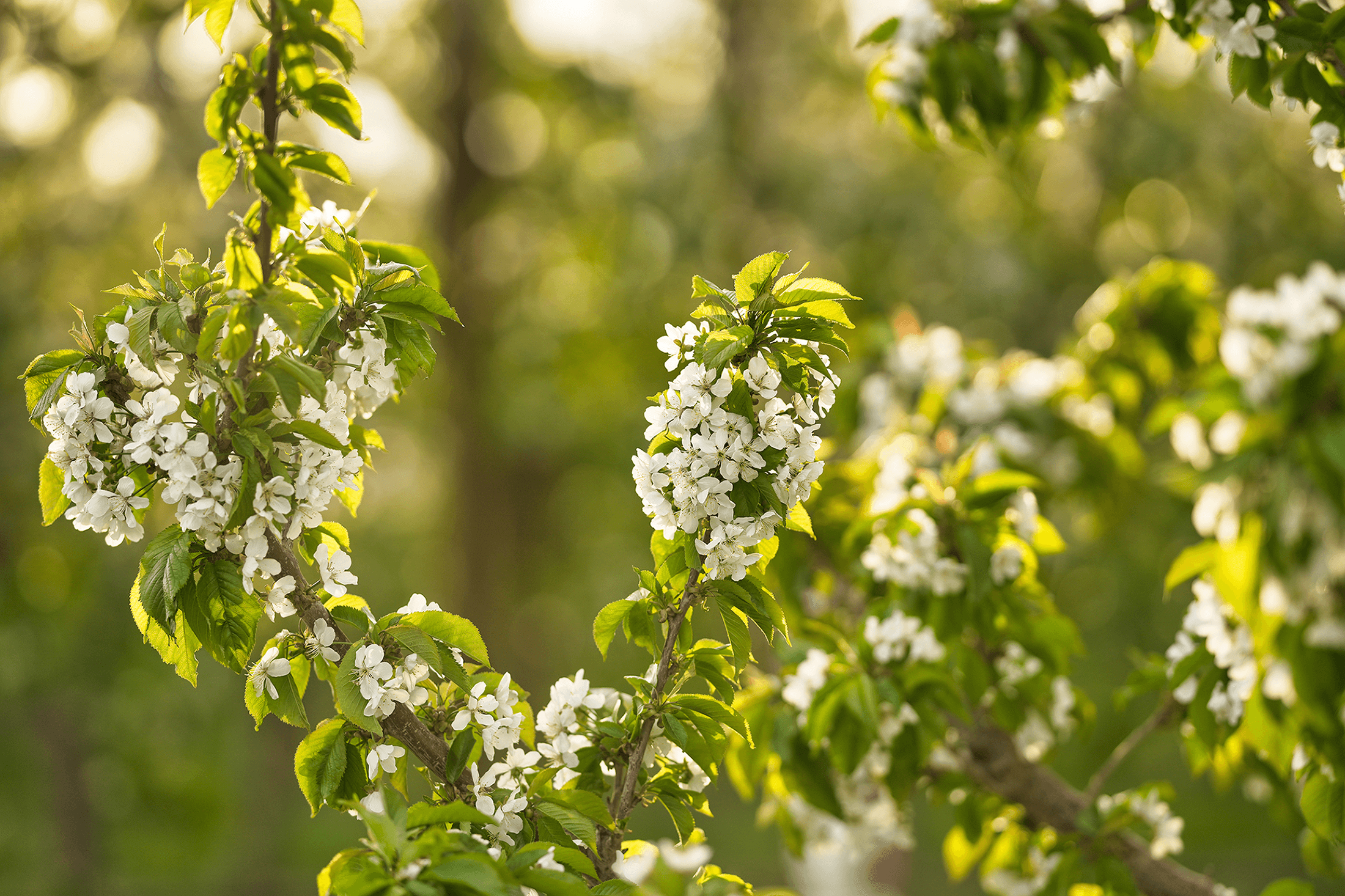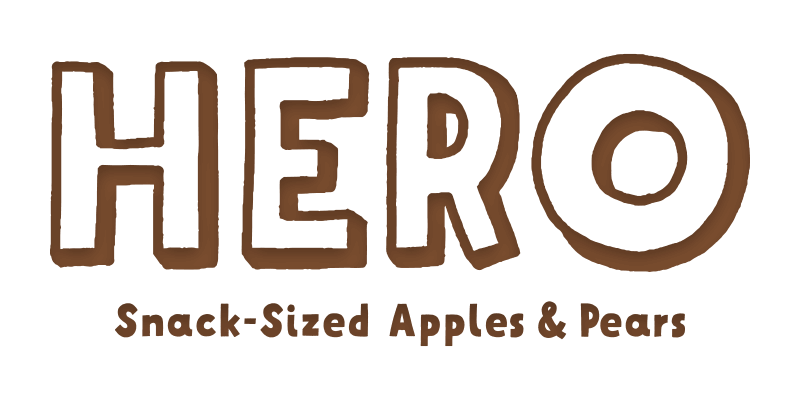
Happy Bees. Happy Trees.
Start with some of the most pristine lands in Washington State, with orchards fed by waters from the roaring Columbia River. Add the perfect amount of sunshine, and crisp mornings, providing quintessential growing conditions for our fruit trees. Pair this with orchardists who are stewards of the land, and for hundreds of years have cared deeply about sustaining the orchard way of life for future generations.
All of this culminates in the ultimate trifecta: Sun-kissed soil. Experienced hands. Perfect fruit.
That’s our fruit. Grown in Happy Bee Orchards™.
The Buzz on Bees
Bees are born to work. They are perhaps the hardest working creatures on the planet, and their labor benefits food production in the most valuable way.
Bees are responsible for pollinating about one-sixth of blossoming plants around the world, and approximately 400 different types of agricultural plants.
Pollination is essentially plant reproduction. Without the help of bees, our everyday food supply would look so different. At least one third of the food staples the world relies on would no longer exist.
Honey bees are the most economically valuable pollinator worldwide, and many high-value crops such as our apples, pears and cherries are entirely reliant upon pollination.
There are around 4,000 different bee species in the U.S. The Apidae family is perhaps the most well known bee family, with familiar members such as the honeybee, carpenter bee and the bumblebee.
Bees have stiff hairs and pockets on their legs, allowing them to collect pollen and be more efficient transporters of it between plants. Collecting pollen from the blossoms on one tree, then transporting it via their leg hairs to the next tree is how pollen is dispersed. It is by carrying pollen between trees, particularly different species of trees, that the male part of the flower, the anther, transfers pollen to the female part of the flower, the stigma. Upon the meeting of the anther to the stigma, the process of forming a tree’s fruit begins.
While some plants are able to self-pollinate (sometimes using the wind to help disperse pollen), commercial fruit trees rely on bees for pollination.
Key Stats
Globally, pollination services are worth more than 3 trillion dollars. In the U.S. alone, pollination of agricultural crops is valued at 10 billion dollars annually (fs.usda.gov).
Of the 100 crops that provide 90 percent of the world’s food, 71 are pollinated by bees (CenterforFoodSafety.org).
In the U.S., honey bees pollinate more than 130 kinds of fruits and vegetables, including apples, pears, and cherries (Farmers.gov).












